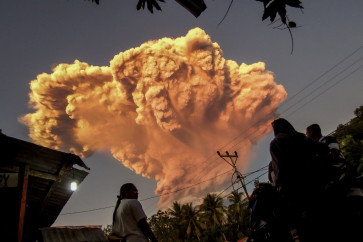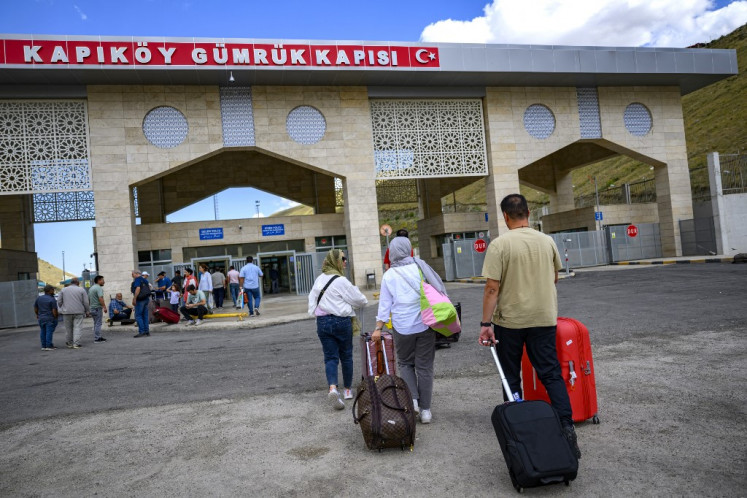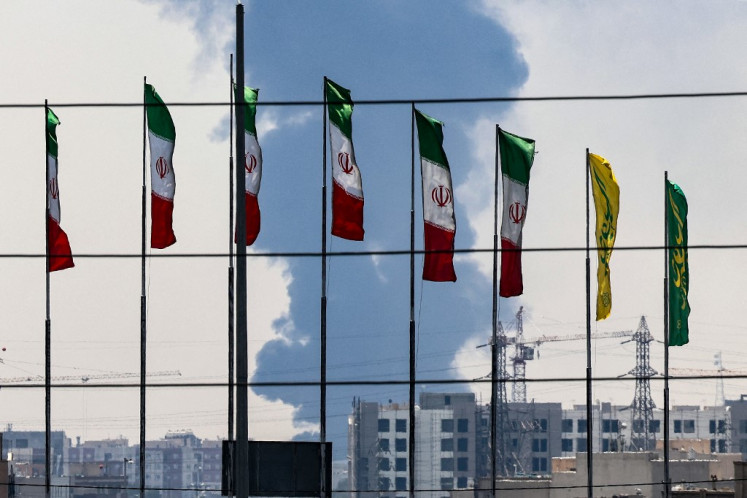Popular Reads
Top Results
Can't find what you're looking for?
View all search resultsPopular Reads
Top Results
Can't find what you're looking for?
View all search resultsRCEP's first round 'sets foundations' for further talks
Trade officials from 16 Asia-Pacific nations on Monday concluded the first round of talks on a trade pact that will further integrate the region and form one of the worldâs biggest economic blocs by 2015
Change text size
Gift Premium Articles
to Anyone

T
rade officials from 16 Asia-Pacific nations on Monday concluded the first round of talks on a trade pact that will further integrate the region and form one of the world's biggest economic blocs by 2015.
The five-day meeting of regional comprehensive economic partnership (RCEP), started last Thursday in Bandar Seri Begawan, Brunei Darussalam, reached a set of deals, notably scopes and programs for further talks in trade in goods and services as well as investment, Trade Ministry director general for international trade cooperation Iman Pambagyo said. Three working groups to discuss the related issues were also set up during the meeting.
'In the first round of the talks we've finally settled technicalities for upcoming talks that the negotiating parties had previously voiced different views,' Iman, who also chaired the trade negotiating committee (TNC), told The Jakarta Post.
Launched last November during the Association of Southeast Asia Nations (ASEAN) Summit in Phnom Penh, Cambodia, the agreement is slated to create a 16-country integrated market in the Asia-Pacific region of around 3.4 billion people with a combined gross domestic product (GDP) of US$21.4 trillion.
It involves six major trading partners of the 10-member ASEAN: Australia, China, India, Japan, South Korea and New Zealand, all of which have already signed separate free trade agreements (FTAs) with the Southeast Asian grouping.
The deal will provide income gains of around $644 billion in 2025, representing 0.6 percent of the world's GDP, through a freer flow of goods, services, investments and labor among participating economies, according to a recent study by the Asian Development Bank.
Brunei Darussalam will take the biggest benefit from the deal, seeing its income rise by almost 6 percent by 2025, followed by Vietnam and South Korea, which will push up their incomes by more than 5 percent and almost 4 percent respectively, the study shows. Indonesia will gain more than 1 percent of GDP by 2025 through participation in the deal.
The RCEP talks kicked off at a time when ongoing discussions on other multilateral free trade agreements, including the US-led Trans Pacific Partnership (TPP) which recently welcomed Japan as its new member, also advance.
RCEP has been seen by many as the rival to the TPP, but others also consider that both deals will serve as building blocks to the creation of the Free Trade Area of the Asia-Pacific.
The negotiating parties would report the progress of the RCEP talks in the first RCEP ministerial-level meeting this August in Brunei, Iman said. The second round of talks was scheduled from Sept. 24 to 27 this year in Brisbane, Australia, he further said.
'In the upcoming meeting we will move on with other issues, particularly schedules for tariff reductions and modalities covered by the agreement,' Iman said.









